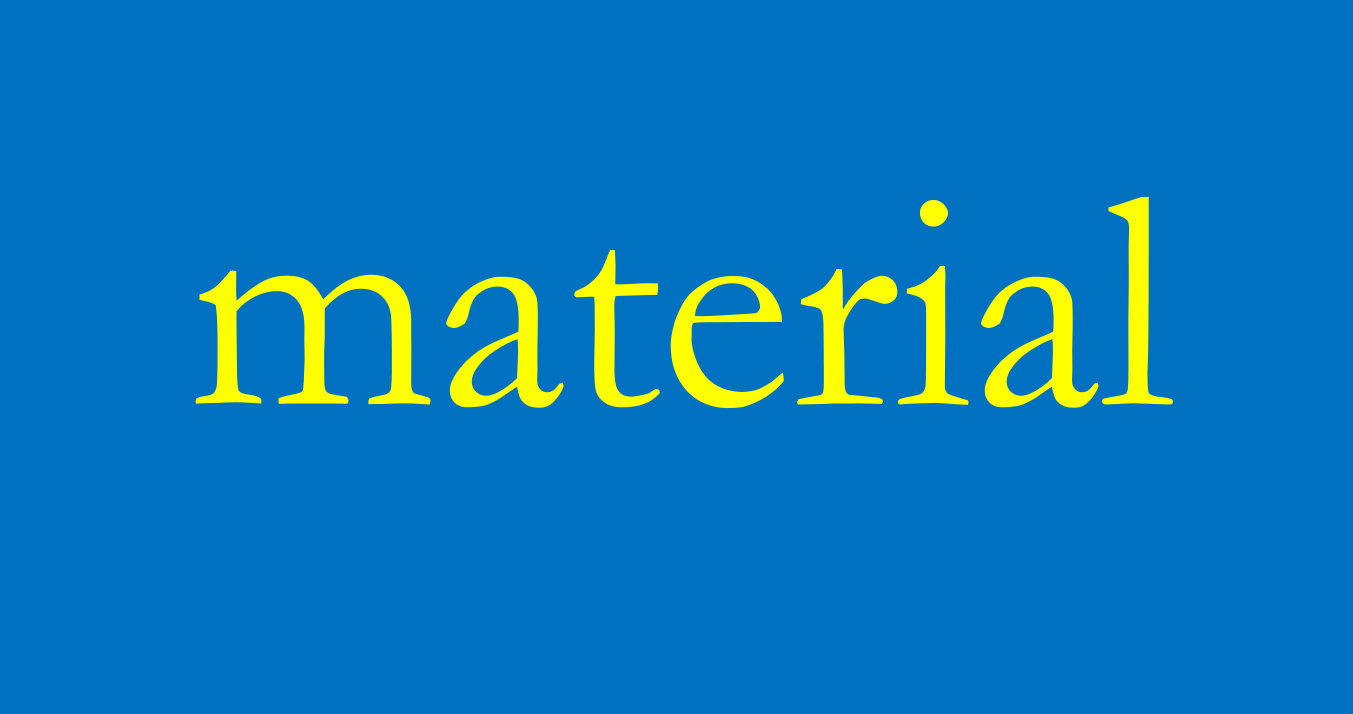
I’m pleased to be able to make available my law review article The Word Material Is Ambiguous in Contracts, Why That’s a Problem, and How to Fix It. It’s in Scribes Journal of Legal Writing; go here for a copy. (The issue in which it appears hasn’t yet been published, but these days no one waits for that.)
Use of the word material in contracts has been the focus of much attention over the years, yet my short article establishes that which previously has only been hinted at obliquely—as used in contracts, the word material is ambiguous.
It has long been recognized that the word material is vague, but the potential for confusion that’s inherent in vagueness means that a different form of confusion—ambiguity—snuck in unnoticed. So material can be used to express two very different meanings, “nontrivial” and “dealbreaker”. The article discusses the implications. They’re challenging, so I expect that most of those who work with contracts would be inclined to live with the current confusion rather than adapt to the unambiguous alternatives to material. I’ll be interested to see whether courts have anything to say about this.
Here’s the simplest takeaway from this article: if you mean “nontrivial”, then use nontrivial!
I ran drafts of this article by a few people who have thought long and hard about materiality. All but one accepted the evidence I collected to the effect that material is ambiguous. The one objector argued that BigLaw lawyers have a shared understanding of what material means. I address that in the article, but the simplest obstacle to the notion of a shared understanding of how to use material without risking confusion is that material is ambiguous—confusion is unavoidable.
This article might be one of my most innovative, joining my article on represents and warrants (here) and my article on efforts provisions (here). As such, it makes for a gratifying coda to my work on the building blocks of contract language. That’s a finite task, and with publication of the fifth edition of A Manual of Style for Contract Drafting, I doubt much remains to be done.
I incorporated the gist of this article in chapter 9 of the fifth edition of MSCD, but I held off talking about it until the article became available.
Here are the first few paragraphs of the article:
The adjective material (as in There is no material litigation pending against the Company) features prominently in contracts—particularly mergers-and-acquisitions contracts. So does the adverb materially, which is used to modify adjectival phrases (as in at a price materially below Fair Market Value) and verbs (as in materially increase the Tenant’s obligations). Drafters use both material and materially to narrow an otherwise broad provision so that it covers only what matters.
The word material also features in the phrases material adverse effect, or MAE, and material adverse change, or MAC. (MAE and MAC are used to express the same meaning, but with a structural difference. Unless referring to a MAE provision in a specific contract provision, this article uses MAE to refer to both MAE and MAC.)
The caselaw on materiality has attracted much attention, but it has gone largely unacknowledged and unaddressed that material is ambiguous — it can be used to express alternative possible meanings.
This article attempts to remedy that inattention. It summarizes the meanings attributed to material in caselaw. It explains that material is not only vague but also ambiguous. It proposes that the alternative meanings of material are best expressed by nontrivial and dealbreaker. It demonstrates how the ambiguity of material creates confusion. It shows that the meaning that would be reasonable to apply to a materiality provision depends on where it occurs in the contract. It explains that drafters unhelpfully favor in all material respects over materially. It suggests how to use nontrivial and dealbreaker instead of material and how to define material if you wish to retain it instead of using dealbreaker. And it explains that you’ll look in vain for some shared understanding of what material means.
Although some aspects of this article pertain to mergers-and-acquisitions contracts, the recommendations apply to any contract that expresses materiality. That potentially includes every kind of business contract. But this article considers only the practice in the United States.

Good piece. Wearing my former litigator hat, though: I don’t think I’d say “There is only trivial litigation pending against the Company” (PDF at 99). In the supposedly-trivial litigation, I can envision a plaintiff’s lawyer brandishing that quote in front of a jury to paint the company-defendant as a scofflaw.
I really appreciate the analysis on the ambiguous meanings of “material” being at the two ends of the spectrum, and I think applying that approach to interpreting the term when it shows up will be very helpful. I’m fully on board with your use of non-trivial, because as you say, it clearly (or as clearly as possible) defines the standard by the tipping point. Dealbreaker I’m not as sure about. It seems just as vague and potentially circular to say “Party A can terminate the deal over any dealbreaker inaccuracy in the disclosures.” If Party A is trying to terminate and is asserting an inaccuracy as the justification, isn’t that, by definition, a dealbreaker for them? I think you may always need the reasonable person definition on that end of the spectrum, regardless of the term you choose, in order to provide some cure to the vagueness.
Hi Noah. Yes, dealbreaker is vague. That’s the point: it’s vague just like material is vague, but it’s not ambiguous! Vagueness is an essential tool for the drafter, to be used carefully when you can’t be precise. Vagueness is subject to a reasonable-person standard, so the concern you raise isn’t in fact an issue.